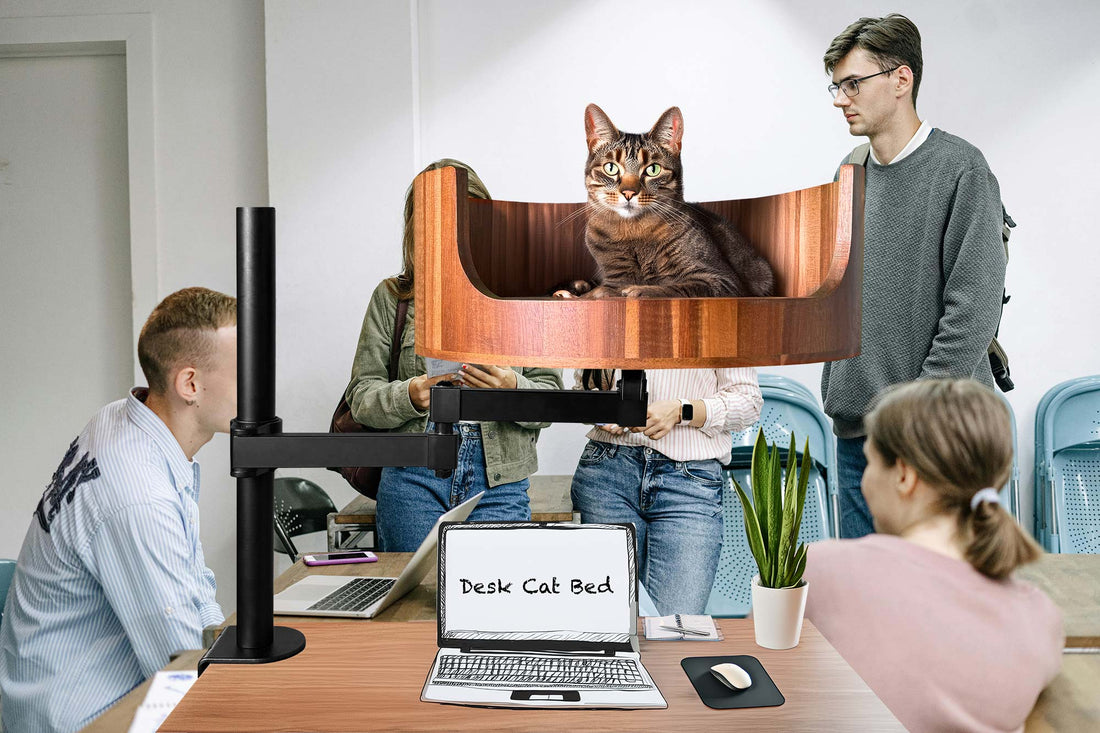
Cat Overeating: Understanding the Causes and Solutions
Share
Does your cat seem to have an insatiable appetite, constantly begging for food and overeating? Cat overeating can lead to a variety of health issues, including obesity and digestive problems. In this article, we will explore the causes of cat overeating and provide practical solutions to help manage your feline friend's eating habits. From understanding the psychological factors that contribute to overeating to identifying the right portion sizes and feeding schedule, we will cover everything you need to know to help your cat maintain a healthy weight and live a happy, fulfilled life.
One common reason for cat overeating is boredom or stress, which can lead some cats to seek comfort in food. Another factor to consider is the quality of food being offered to your cat, as low-quality diets may not satisfy their nutritional needs, leading them to eat more than necessary. Additionally, underlying health conditions such as diabetes or hyperthyroidism can also cause increased appetite in cats. By addressing these underlying issues and implementing appropriate feeding strategies, you can help your cat establish a healthy relationship with food and prevent the negative consequences of overeating.
1. Overeating in cats can be caused by various factors, including stress, boredom, and medical conditions.
2. Monitoring your cat's diet and providing appropriate portion sizes can help prevent overeating.
3. Engaging your cat in regular playtime and providing stimulating toys can help reduce the urge to overeat out of boredom.
4. Consulting with a veterinarian is important to rule out any underlying health issues contributing to your cat's overeating.
5. Implementing a feeding schedule and using puzzle feeders can also help regulate your cat's eating habits and prevent overeating.
Cat Overeating: Understanding the Causes
When it comes to understanding why cats overeat, there are several factors to consider. Some common causes of cat overeating include stress, boredom, medical conditions such as diabetes or hyperthyroidism, and free-feeding. Cats may also overeat if they are not getting enough nutrients from their food or if they have a history of being food-deprived. It's important to work with your veterinarian to rule out any medical issues that could be contributing to your cat's overeating behavior.
Environmental Factors
The environment in which your cat lives can also play a role in their eating habits. For example, cats who live in multi-cat households may feel the need to compete for food, leading to overeating. Additionally, cats who are kept indoors may experience boredom or lack of mental stimulation, which can lead to overeating out of sheer habit. Providing environmental enrichment, such as puzzle feeders or interactive toys, can help alleviate these issues.
Portion Control and Feeding Schedule
One solution to cat overeating is to establish a feeding schedule and practice portion control. By feeding your cat at set times throughout the day rather than leaving food out for them to graze on, you can help regulate their intake. Measuring out the correct portion size for your cat's weight and activity level is also crucial in preventing overeating. Additionally, consider feeding your cat high-quality, nutrient-dense food to ensure they are getting the proper nutrition without needing to overeat.
Behavioral Modification
If your cat is overeating due to stress or boredom, it may be helpful to implement behavioral modifications to address these issues. Providing your cat with plenty of opportunities for exercise and mental stimulation can help reduce their need to overeat out of boredom. Additionally, consider implementing feeding puzzles or slow feeders to make mealtime more engaging for your cat. Consulting with a veterinarian or animal behaviorist can help identify specific strategies to address your cat's overeating behavior.
Desk Cat Nest FAQ
Will the Desk Cat Nest help my cat stop overeating?
While the Desk Cat Nest is designed to provide a cozy and comfortable space for your cat to eat, it is not a guaranteed solution for cat overeating. It may help in reducing their food intake by providing a designated eating area, but other factors such as the type of food, portion control, and feeding schedule also play a role in managing your cat's eating habits.
Can the Desk Cat Nest accommodate multiple cats?
Yes, the Desk Cat Nest is spacious enough to accommodate multiple cats at once. However, it is important to monitor their behavior during meal times to ensure fair distribution of food and prevent any food aggression between cats.
Is the Desk Cat Nest easy to clean?
Yes, the Desk Cat Nest is designed for easy cleaning. The removable food and water bowls are dishwasher safe, and the cushioned nest area can be spot cleaned with a damp cloth. It is recommended to clean the Desk Cat Nest regularly to maintain a hygienic eating environment for your cat.
Can I use the Desk Cat Nest for wet food?
Yes, the Desk Cat Nest is suitable for use with both dry and wet cat food. The removable bowls are designed to hold wet food without leaking, making it a versatile option for feeding your cat their favorite meals.
In conclusion, the Desk Cat Bed is a valuable solution for addressing cat overeating. By providing a designated area for feeding within a comfortable and secure space, it helps to regulate portion sizes and promote healthy eating habits for cats. Additionally, the elevated design of the Desk Cat Bed helps to prevent overeating by reducing the risk of gulping food too quickly. Overall, this innovative product offers a practical and effective way to manage and control your cat's overeating behavior.



















































